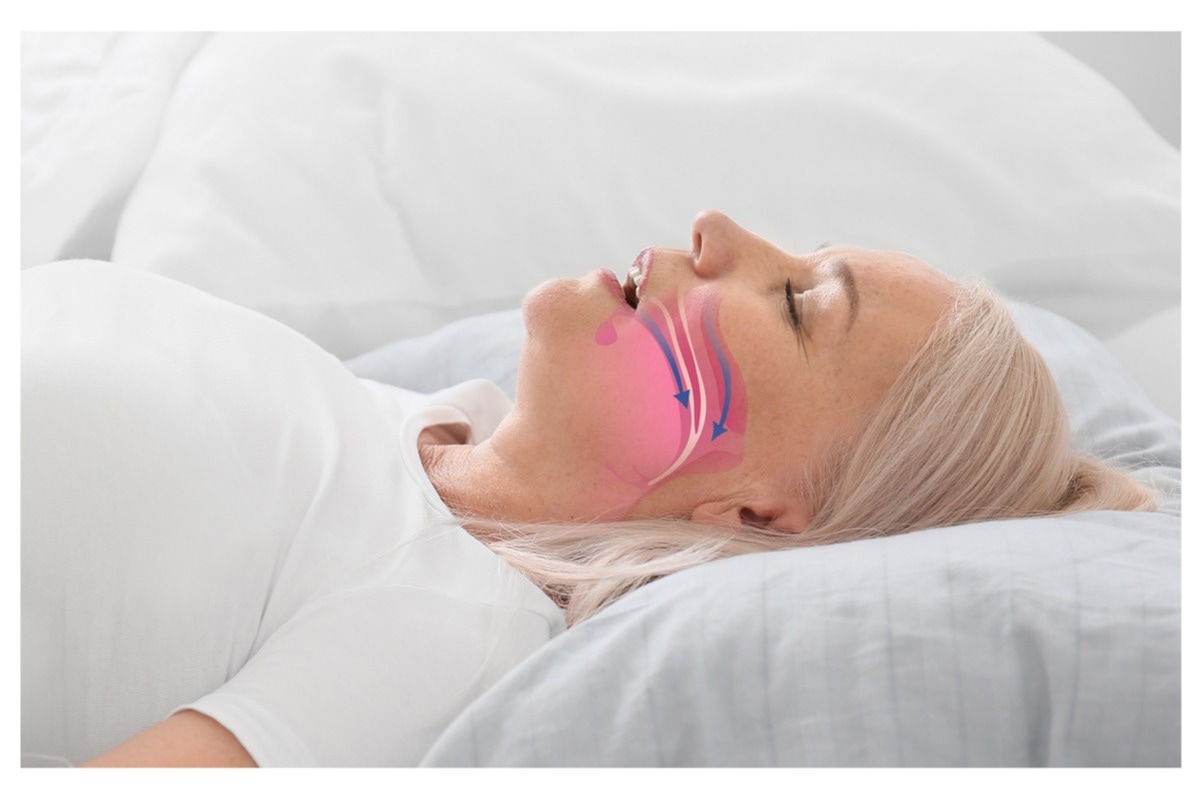There are a number of treatment options for obstructive sleep apnea (OSA), which vary according to its severity. Although there is no cure for OSA, proper treatment is critical for reducing risks associated with chronic fatigue and cardiovascular disease. Untreated OSA is potentially life-threatening.

Image Credit: Pixel-Shot/Shutterstock.com
The severity of OSA drives treatment options and is determined using the apnea-hypopnea index (AHI), which measures the number of apnea and hypopnea episodes per hour of sleep. AHI scores of less than 5 are normal. A patient with an AHI score of 5-15 is considered to have mild OSA, while a score of 15-30 indicates moderate OSA. AHI scores of >30 are indicative of severe OSA.
Mild Obstructive Sleep Apnea
Mild OSA can be typically treated through a series of lifestyle changes. More than half of all OSA sufferers are overweight, and studies have shown that even modest amounts of weight loss can reduce the number of apnea and hypopnea episodes that occur throughout the night, leading to improved quality of sleep.
Weight loss also reduces blood pressure and improves dyslipidemia and insulin resistance often seen in patients with OSA. In addition to weight loss, restricting alcohol consumption can often improve symptoms of OSA.
Alcohol relaxes muscles, including the dilator muscles in the throat that keep the pharynx open during sleep. People with OSA should not smoke because cigarette smoke can cause swelling, and thereby narrowing, in the upper airway.
OSA often can be improved by a change in sleeping position, as side sleepers are less likely to experience apnea or hypopnea episodes than back sleepers. For those with chronic nasal congestion, use of a nasal decongestant can reduce airway blockage.
Moderate-to-Severe Obstructive Sleep Apnea
The first line of treatment for OSA is typically continuous positive airway pressure (CPAP). CPAP uses a close-fitting facial mask to continuously blow air at a uniform pressure through the nose and mouth in order to keep airways open during sleep.
CPAP reduces the number of airway blockages during the sleep period and typically leads to improved quality of sleep and lessens daytime fatigue. However, CPAP requires the patient to accept and adhere to treatment in order to be effective, which does not always happen.
Similar to CPAP is bilevel continuous airway pressure (BPAP). BPAP is another form of positive airway pressure that uses two levels of pressure—one for inhalation and another for exhalation.
When positive airway pressure treatment is ineffective or patients have severe craniofacial alterations or abnormalities, surgery is often recommended. Several surgical options exist. Uvulopalatopharyngoplasty (UPPP) removes the tonsils, adenoids, uvula, or other soft tissue in order to physically enlarge the diameter of the airway.
A second surgical option is the surgical placement of an upper airway stimulator, a device that stimulates nerves in the throat muscles, keeping the airway open during sleep. Upper airway stimulators can significantly reduce AHI score and improve the quality of sleep.
Nasal surgery can be effective in alleviating OSA when the airway obstruction is due to a deviated septum or nasal polyps.
In cases where OSA is caused by severe facial abnormalities, maxillomandibular advancement surgery can move the lower jaw and face bones forward in order to increase the width at the back of the throat.
Mandibular advancement devices are an alternative treatment option worn during sleep that opens the airway by physically holding down the tongue or adjusting the lower jaw forward. These dental appliances must be fitted by a dental professional.
References
Further Reading
Last Updated: Jun 22, 2022